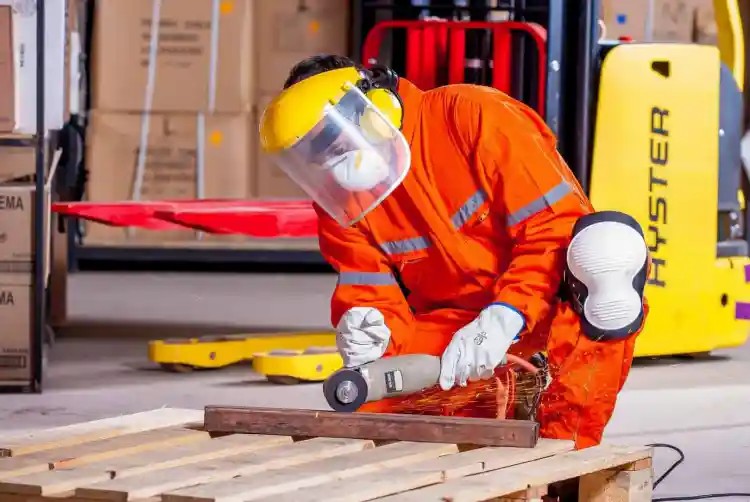


 349,500 Offered Certificates
349,500 Offered Certificates
 24/7 Online Training
24/7 Online Training
 Money Back Guarantee
Money Back Guarantee
 Fully Accredited Courses
Fully Accredited Courses

Created at: 22-02-2025 20:32
Abrasive wheels are powerful tools used across various industries, from construction to manufacturing. While they are essential for cutting and shaping materials, they come with significant risks that must be understood and managed to ensure workplace safety. This guide covers the dangers associated with abrasive wheels, highlights common injuries, and provides best practices for mitigation, including the importance of obtaining an Abrasive Wheels Certificate.
Abrasive wheels pose various risks due to their high-speed operation and the potential for breakage. Employees need to be aware of these dangers to ensure their safety and the safety of those around them.
Understanding the types of injuries that can occur is crucial for prevention:
Implementing safety measures is essential for protecting workers:
Obtaining an Abrasive Wheels Certificate helps improve workplace safety and compliance with Irish workplace regulations. This certification provides individuals with the necessary training to handle abrasive equipment safely, thereby reducing the likelihood of accidents. Employers benefit from certified staff who are well-versed in safety standards and operational protocols.
With training facilities available across Ireland, including cities like Dublin, Cork, Galway, Limerick, and Waterford, workers can easily access certification courses. Consider enrolling in Abrasive Wheels Training in Dublin or other locations to enhance your skills and career prospects.
Working with abrasive wheels can be hazardous, but with the right training, PPE, and safety practices, the risks can be managed effectively. Obtaining an Abrasive Wheels Certificate is not just a regulatory requirement; it’s an investment in your career and safety. Contact us at [email protected] to learn more about our training programs and keep your workplace safe.